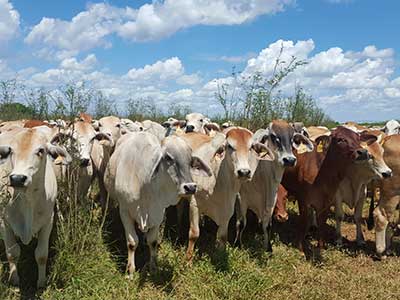Western Australia makes changes to cattle import requirements from 1 July 2021

Caption: Bovine Johne's disease regulation relaxed in Northern Territory.
The Western Australia (WA) Department of Primary Industries and Regional Development (DPIRD) has advised that the Johnes Disease (C‑strain) requirements for importing cattle from the Northern Territory (NT) into WA will change from 1 July 2021.
What does this mean for NT producers?
NT properties who have been trading with WA under Johne’s Beef Assurance Scheme (JBAS) score 7 or 8 with an annual check test of 50 animals will be able to continue trading, however the sampling and testing requirements will change as well as the evidence required from properties where you have sourced animals introduced into your herd.
To accommodate for the changes which will be introduced on 1 July 2021, there will be a transitional period from July 2021 to July 2024 for NT and Queensland producers.
What are the new sampling and testing requirements?
- From 1 July 2021 all NT properties planning to move cattle to WA will require one negative screening test.
- By 30 June 2024, a second negative screening test will also be required.
- The two screening tests should be undertaken two to four years apart.
- If you have undertaken a negative JBAS sampling test (300 animals) prior to 1 July 2021, you will need to complete a screening test within two to four years of the last sample test during the transition period, and any further screening tests required in that period.
Screening test
- Faecal samples from 230 individual animals, which must be collected by a registered veterinarian.
- Faecal samples from introduced cattle (up to a maximum of 50 introduced animals).
- Laboratory fees for testing will be approximately $5,700. Veterinary fees are additional.
- Turnaround time - testing will be completed within one week of receipt of samples.
What are the other requirements?
Biosecurity plan
- A registered veterinarian must oversee a property-specific plan for the property of origin that minimises the risk to the herd of introduction of JD (C-strain), including that properties supplying introduced cattle.
- A copy of the biosecurity plan does not need to be submitted.
Declarations
Producer and veterinarian declarations that declare:
- the imported cattle are from property of origin that meet WA's JD import conditions
- for homebred cattle: (up to 230) homebred cattle were included in the faecal herd screening test as per the conditions
- for introduced cattle: (up to a maximum of 50) introduced cattle were tested as per the conditions
- any property that supplied cattle introduced onto the property of origin has undertaken JD testing in accordance with WA's JD import conditions
- the imported cattle have been grazed only on properties of origin and eligible properties that meet WA's JD import conditions and have not been in contact with cattle that do not meet WA’s JD import conditions
- the imported cattle were born and grazed on properties that have been free from JD (C-strain) infection or clinical cases for the last five years
- copies of all laboratory results must accompany the declarations.
Properties which are unable to meet the WA requirements may submit an application for a permit to import. WA will undertake a risk assessment at a cost to applicant.
A video which outlines the changes is due to be released by WA soon.
More information
For full details of the changes, go to the DPIRD website.
